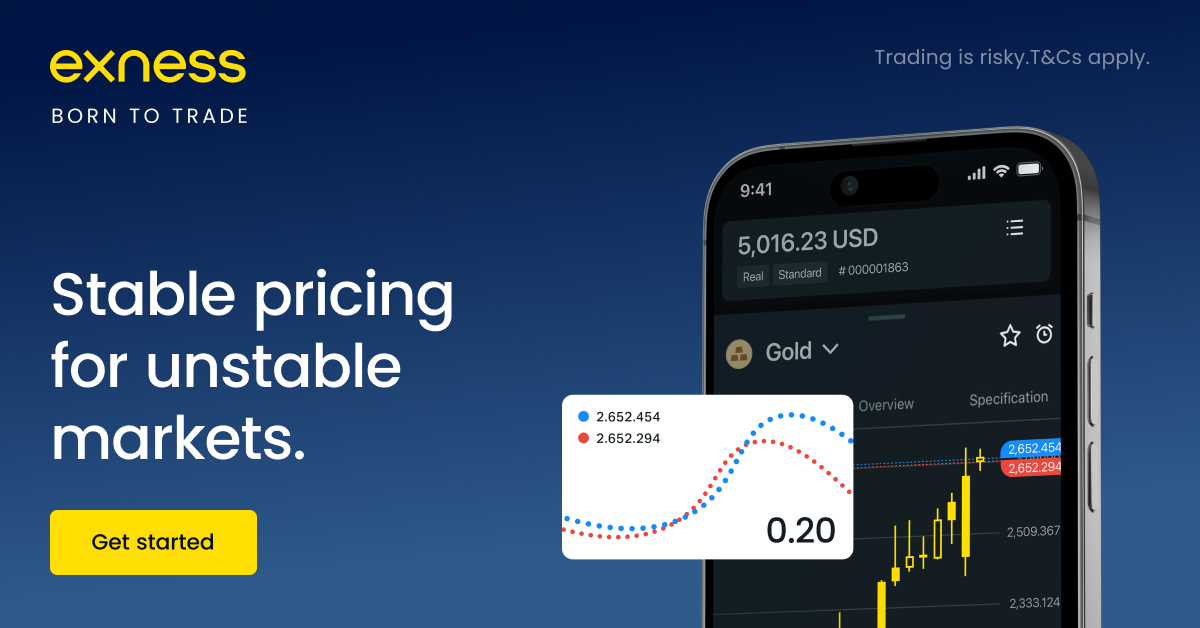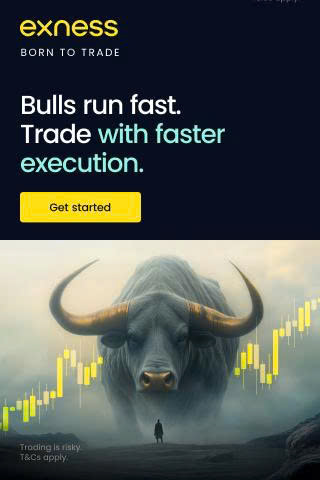
6 minute read
is OctaFx Regulated in South Africa
In today’s hyper-connected trading ecosystem, regulation is no longer optional—it’s essential. For South African traders navigating the booming Forex and CFD space, the question is critical: Is OctaFX regulated in South Africa? This in-depth SEO-optimized review cuts through the noise with pure, focused insight. No fluff. No filler. Just pure clarity.
🏅 3 Best Forex Brokers
1️⃣ Exness: Open Account Trading | Go to broker
2️⃣ XM: Open Account Trading | Go to broker
3️⃣ JustMarkets: Open Account Trading | Go to broker

🧭 Understanding Forex Regulation in South Africa
Before analyzing OctaFX’s status, we must define what “regulated in South Africa” means.
In South Africa, the Financial Sector Conduct Authority (FSCA) is the governing body responsible for regulating and licensing all financial service providers—including Forex brokers. To legally operate within the country, a broker must possess an FSP license (Financial Services Provider license) issued by the FSCA.
Without this license:
A broker cannot legally solicit or offer services to South African residents.
Traders using such platforms are not protected by South African law.
There’s no access to local dispute resolution or compensation schemes.
💡 So, if a broker isn’t FSCA-licensed, it’s not recognized as a legitimate financial service provider inside the country—regardless of its global presence.
❌ Is OctaFX Regulated by the FSCA?
No, OctaFX is not regulated by the FSCA in South Africa. As of now:
It does not hold a valid FSP license.
It does not appear in the official FSCA register.
It operates as an offshore broker, serving South African users via its international entity.
Despite this, it still allows South African residents to open accounts and trade on its platform. This is a legal grey area, not technically illegal but entirely unregulated from a South African legal standpoint.
🌍 Where Is OctaFX Regulated?
OctaFX is an international broker that operates under multiple legal umbrellas, none of which are tied to South Africa:
✅ Cyprus Securities and Exchange Commission (CySEC) – Offers protection for EU clients under MiFID II framework.
✅ St. Vincent and the Grenadines (SVG) – Offshore registration (Octa Markets Incorporated), but not a regulatory body in the traditional sense.
While CySEC regulation provides some level of transparency and consumer protection, this applies only to traders registered under the EU entity, not South African residents.
So, if you’re in South Africa, your account will most likely fall under the SVG registration, which lacks regulatory enforcement, investor protection, or compensation fund access.
🔐 Is OctaFX Safe for South African Traders?
Regulation aside, many traders wonder if OctaFX is still a trustworthy and secure platform. Let’s analyze from a security perspective:
🧩 Segregated Client Funds
OctaFX claims that all client funds are held separately from corporate accounts. This is a standard practice among serious brokers, intended to prevent misuse of user capital.
🔒 Negative Balance Protection
Even under volatile market conditions, your account balance won’t drop below zero. This feature shields retail traders from catastrophic loss, especially important in high-leverage environments.
🔐 SSL Encryption & 2FA
OctaFX applies secure socket layer (SSL) encryption across its web and mobile platforms. Two-Factor Authentication (2FA) is also available, adding another layer of user protection.
📌 However: These safety features are self-imposed by OctaFX. Without FSCA oversight, South African users have no legal mechanism to enforce these protections.
⚖️ Legal Status: Can South Africans Legally Use OctaFX?
Yes, South Africans can legally use OctaFX, but with caveats.
South African law does not criminalize trading on offshore platforms.
You may deposit, trade, and withdraw freely.
However, because OctaFX lacks local licensing, you do so at your own risk.
In the event of a dispute—such as delayed withdrawals or order manipulation—South African traders cannot turn to FSCA or local courts for recourse. You're bound to the terms and policies set by OctaFX’s offshore entity.

💸 Funding & Withdrawal for South African Traders
OctaFX supports various payment methods tailored to international users. In South Africa, you can typically use:
💳 Visa/Mastercard
💼 Skrill / Neteller
📲 Bitcoin and USDT wallets
💸 Bank transfers (via third-party processors)
Processing times vary:
Deposits: Usually instant to a few hours
Withdrawals: Often completed within 1–3 business days
⚠️ Important: Since OctaFX is not regulated locally, some banks or payment processors may flag or delay transactions. You are also liable for any cross-border fees.
📱 OctaFX Features for South African Traders
Despite being unregulated in South Africa, OctaFX offers a feature-rich experience:
📈 Platforms
MetaTrader 4 (MT4): Ideal for beginners
MetaTrader 5 (MT5): Advanced tools for pro traders
OctaFX Mobile App: Intuitive UI, live charts, seamless execution
💰 Minimum Deposit
Start with as little as $5 (≈ R90), making it accessible to students and low-capital traders.
⚖️ Leverage & Spreads
Up to 1:500 leverage
Spreads from 0.6 pips
No commissions on standard accounts
🔁 Copy Trading
Replicate trades of professional traders. This is especially useful for beginners learning by observation.
🧠 How Do South African Traders Perceive OctaFX?
Across Forex communities, Facebook groups, and Reddit threads, South African users consistently mention:
✅ Pros:
Low spreads, fast execution
Friendly user interface
Quick deposits and withdrawals
Minimal technical issues on mobile app
❌ Cons:
No FSCA protection
Inconsistent customer support experiences
Some delays during high volatility events
Limited availability of ZAR as account currency
📣 Should the FSCA Regulate OctaFX?
Many South African traders argue that OctaFX should seek FSCA licensing. The benefits would include:
Greater trust in the brand
Local dispute resolution options
Better alignment with SA banking standards
Opportunity to provide ZAR-denominated accounts
Yet, FSCA licensing also means stricter rules around leverage, bonuses, and advertising—factors that offshore brokers typically bypass to stay competitive.
⚠️ Key Risks of Using an Unregulated Broker in South Africa
No Legal Recourse: If things go wrong, you're on your own.
No Compensation Fund: Losses due to fraud or insolvency won’t be covered.
Risk of Regulatory Crackdown: FSCA may block access to non-compliant platforms in the future.
Volatile Leverage Ratios: Without regulatory limits, high leverage can lead to extreme losses.
Currency Risk: Trading in USD while living in South Africa exposes you to currency conversion fluctuations.

🔥 Verdict: Can OctaFX Be Trusted in South Africa?
OctaFX is not FSCA regulated, but it is not a scam. It is a globally recognized offshore broker with:
A decade-long operational history
Thousands of daily active users
Robust technological infrastructure
Competitive trading conditions
However, South African traders must approach with eyes wide open. You are dealing with an offshore provider. You must be:
✅ Risk-aware
✅ Strategically disciplined
✅ Financially cautious
🧠 Pro Tips for South African Traders Using OctaFX
💼 Start with a demo account🎓 Use OctaFX's free trading tutorials💳 Test withdrawal speed with a small amount first📈 Use stop-loss and take-profit tools religiously📱 Enable 2FA for added security💡 Never trade with money you can’t afford to lose
Read more:
what lot size is good for $1000 forex account
is forex trading profitable reddit
when is the new york session forex
what is non farm payroll forex
🏁 Final Summary
Is OctaFX regulated in South Africa?❌ No, it is not licensed by the FSCA.
Is it legal to use in South Africa?✅ Yes, but you trade at your own risk with no local protection.
Is it trustworthy?⚠️ Trustworthy based on global performance and user feedback, but lacks South African legal oversight.
📌 Bottom Line: OctaFX offers value-packed services for South African traders seeking flexible and low-cost trading solutions. But without FSCA regulation, you must approach it like any offshore opportunity—with clarity, caution, and control.










